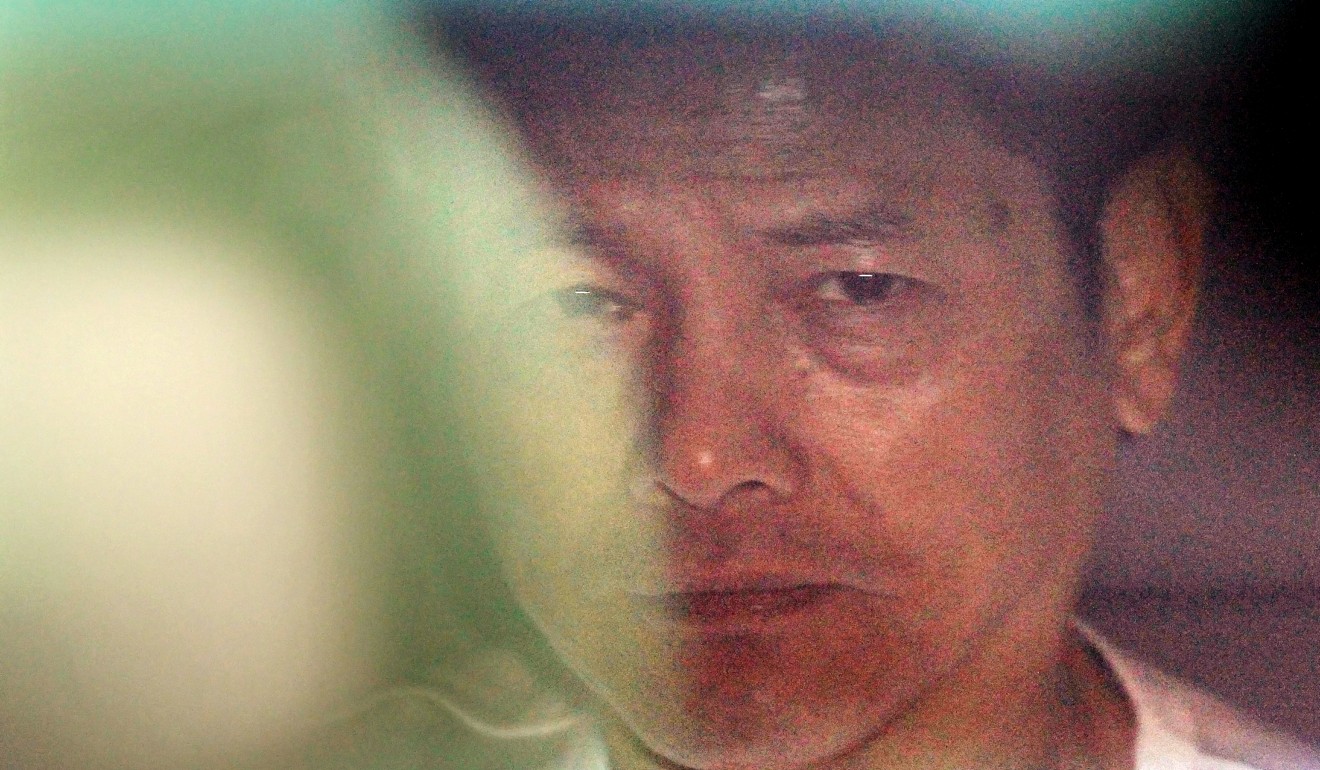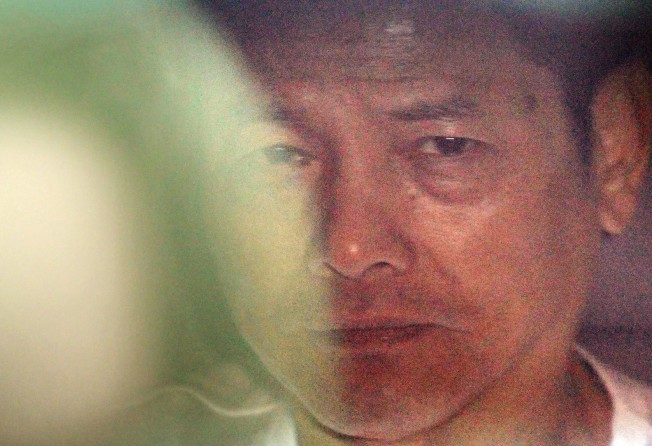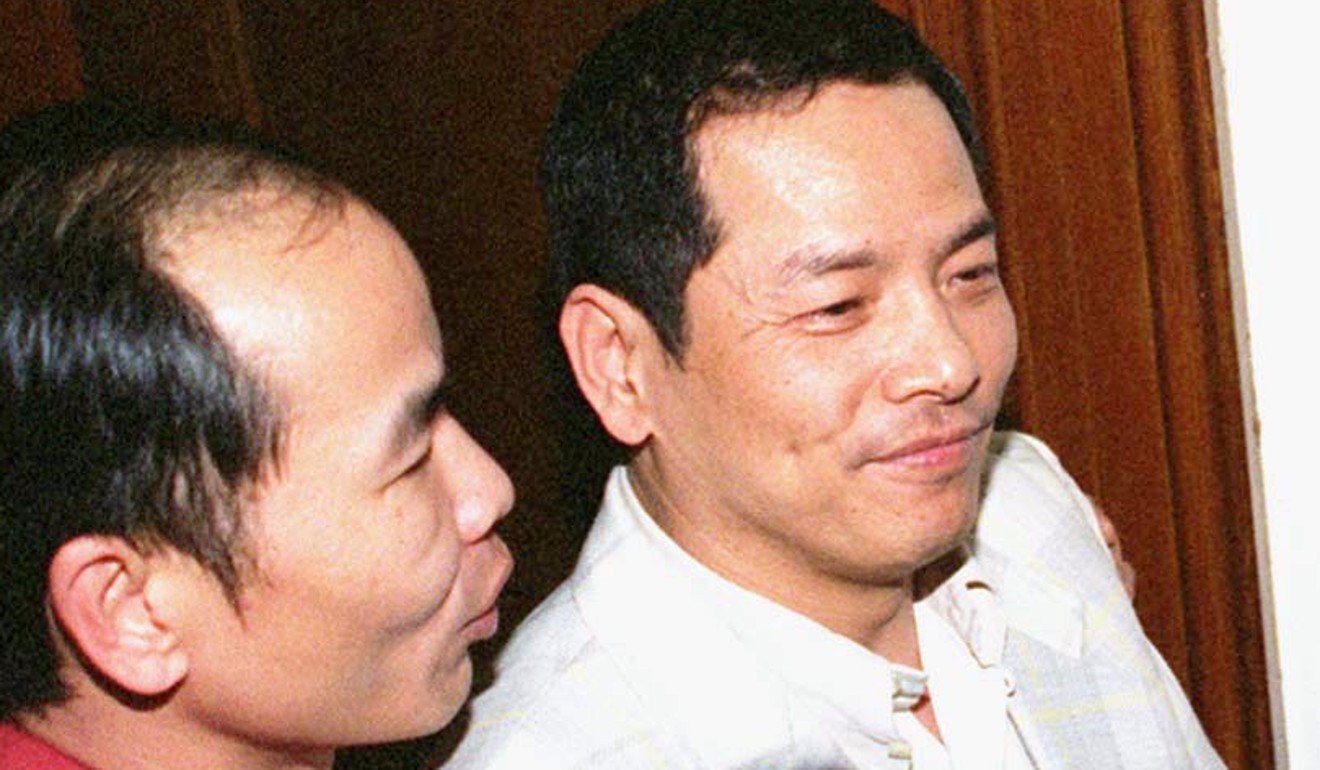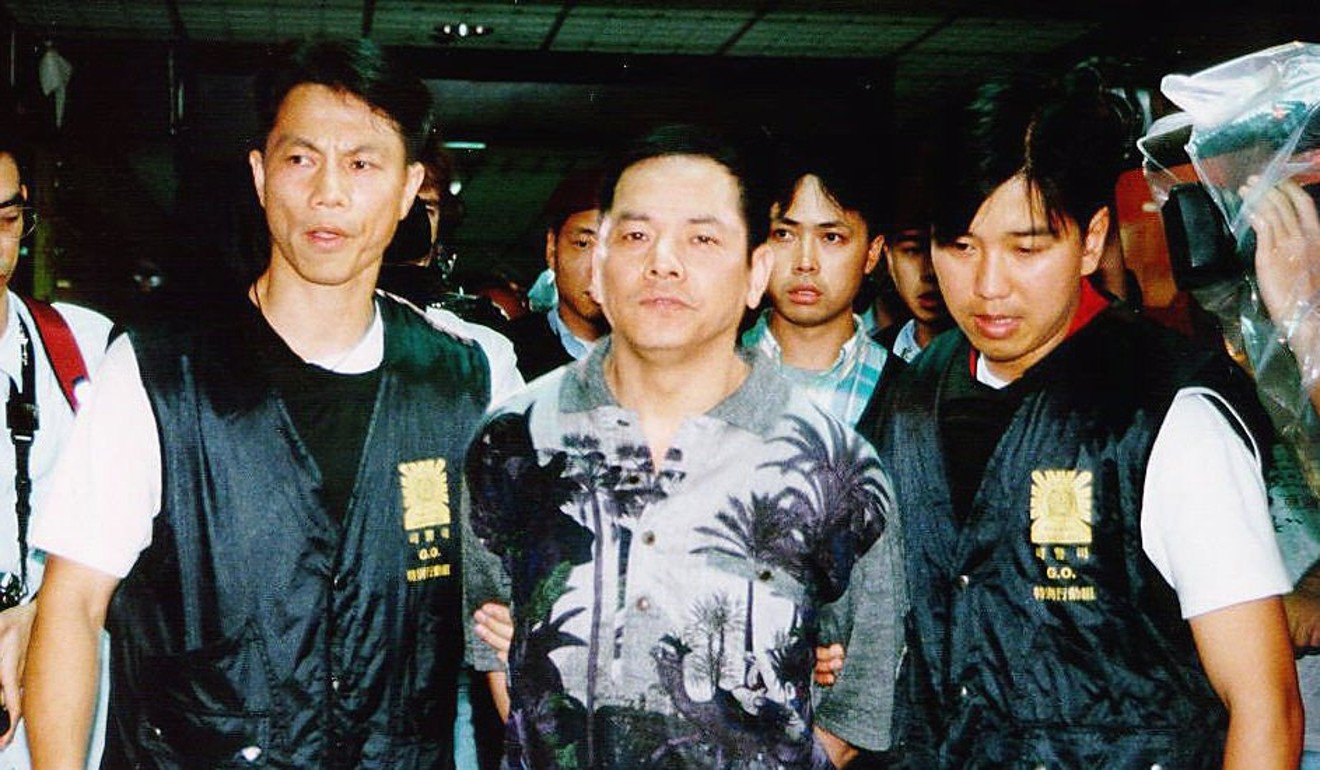
Former Macau gangland boss enters into multimillion-dollar casino cryptocurrency deal
Photographs obtained by the Post show ‘Broken Tooth’ Wan Kuok-koi at signing ceremony

A multimillion-dollar cryptocurrency “share” offer by a Macau gaming company has the backing of one of Asia’s most notorious former gangland bosses – “Broken Tooth” Wan Kuok-koi.
The initial coin offering (ICO) planned for Hong Kong next month hopes to raise US$500 million to bring blockchain technology to the world’s most cash-rich gambling hub and is closely connected to casino junket operators in the former Portuguese enclave. It would be the biggest single ICO to date.
But the move by Macau Dragon Group and the Thailand-based Wi Holding Company Limited is likely to face close scrutiny by regulators after links to former 14K triad society boss Wan, 61, emerged.
Photographs obtained by the South China Morning Post – and verified as genuine by sources with knowledge of the ICO – show Wan, who was released after 14 years in jail for an array of gangland crimes including money laundering in 2012, at a signing ceremony to cement the deal between the two companies.

The planned ICO comes at a sensitive time and follows a recent crackdown on cryptocurrencies by Beijing due to concerns over fraudulent fundraising, speculative investment and capital flight.
A source with experience of junket financing said: “This is probably a more secure IOU than the junkets’ traditional handshake or one-page agreement. However, that is precisely why it is impossible to believe this will be tolerated by the authorities – they are essentially trying to use an IT patch to legitimise an underground activity.”
On Monday night, a spokeswoman for the Hong Kong Monetary Authority said the body would not comment on “individual cases”. Neither the Security and Futures Commission nor the Macau Monetary Authority had responded to questions.

However, the authority spokeswoman stated that the public needed “to understand the features and risks associated with these activities including the company, the project and the digital token/cryptocurrency involved. A digital token/cryptocurrency trading platform may be unregulated and located overseas, so investors may risk losing the entire investment if one ceases operations”.
Earlier Monday, Chakrit Ahmad, the chief executive officer of Wi Holding Company Limited, was quoted by business and gaming media websites as saying: “This is the first time anybody has allowed the public to invest in a public junket or become a shareholder of a casino. You’re basically becoming a shareholder in a junket, utilising blockchain technology, getting revenues from that, and plugging that back into the token.”
Earlier this month, the People’s Bank of China banned the practice of creating and selling new digital currencies, and ordered the country’s major cryptocurrency exchanges be shut down. ICOs have raised at least 2.62 billion yuan (US$400 million) in China so far this year, according to a Reuters report.
Ahmad said the ICO would evade the crackdown because the tokens will be issued in Hong Kong, but added that the digital nature of the transactions would allow mainland authorities to track illegal outflows through the casinos.

As the head of Macau’s 14K triad, Wan waged a brutal war with rival triads, or organised crime gangs, for dominance of the lucrative VIP rooms in Macau’s casinos before the city’s 1999 return to Chinese sovereignty.
He was arrested soon after a bomb destroyed the car of Macau’s director of investigative police, who was out jogging when the vehicle exploded and was unscathed by the assassination attempt.